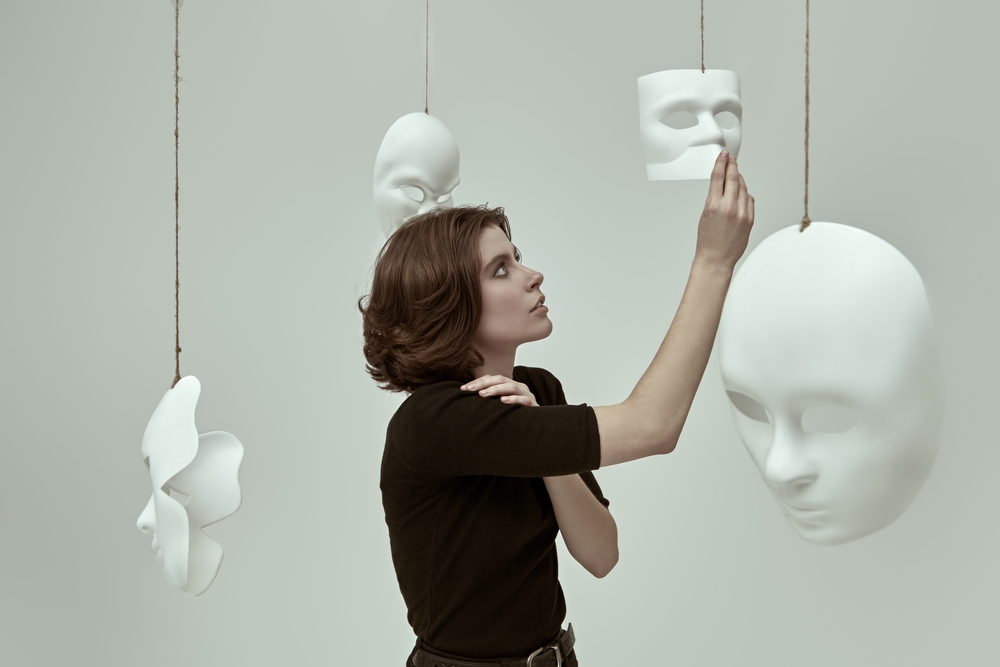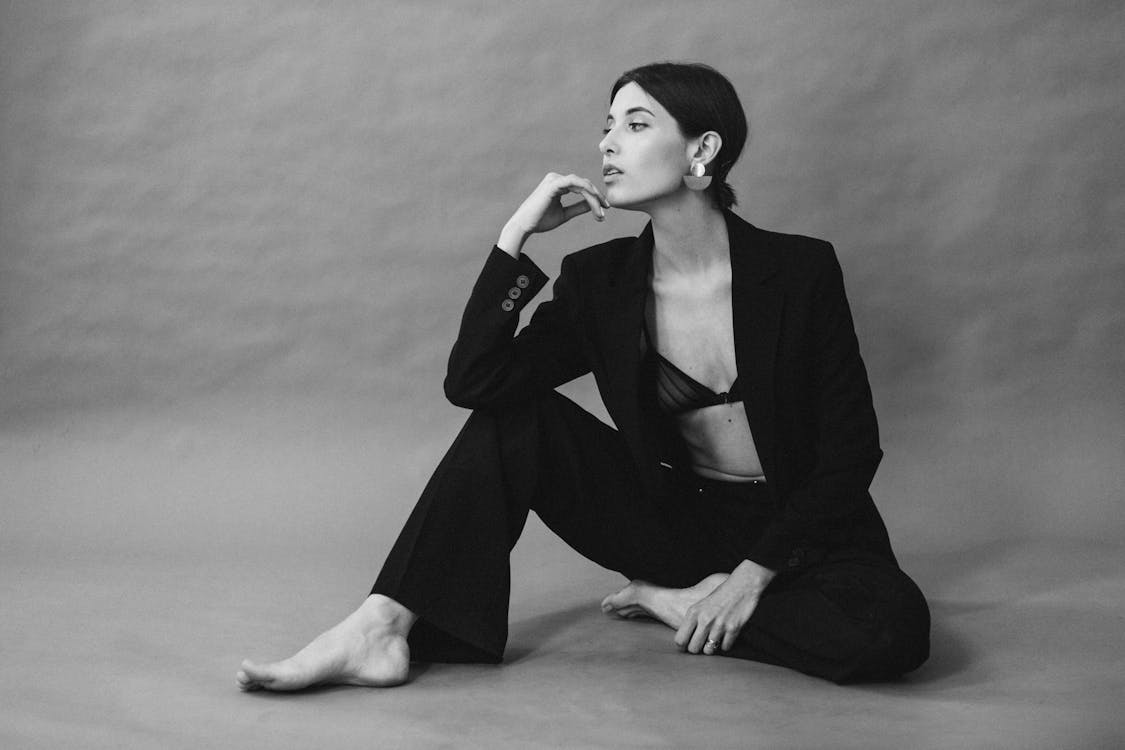What Wearing All Black Reveals About Your Personality

When you wear black, you’re not just making a fashion choice—you’re making a statement about who you are. Black isn’t loud, but it’s undeniably powerful. It’s a color that demands attention without seeking it, a reflection of the depth, complexity, and confidence of those who choose it.
For some, black offers protection—a kind of emotional armor that shields them from the chaos of the world. For others, it’s a way to express elegance and authority, a subtle yet striking way to say, “I know who I am.”
But what does wearing black really reveal about you? Is it a sign of your inner strength, a way to find focus, or something more personal? This article peels back the layers of black’s cultural history, psychological power, and practical appeal, offering you a deeper understanding of why this color resonates so deeply. By the end, you might discover that black is more than just a color—it’s a way of life.
The Timeless Journey of Black Clothing in Culture and Fashion
 Image source: Pexels
Image source: Pexels
Black has always carried a profound duality. In the West, it is often tied to mourning and solemnity, worn at funerals to honor the dead. But black isn’t just about sorrow; it’s also a timeless emblem of sophistication. Think of the classic black tuxedo or the iconic little black dress—symbols of elegance that have defined fashion across generations.
In other parts of the world, black’s meaning shifts. In many Eastern cultures, it signifies wisdom, stability, and introspection, often worn by scholars or spiritual leaders. Its simplicity and depth reflect an inner calm and focus. Despite these varying interpretations, one thing remains consistent: black transcends boundaries. It’s a color that adapts, speaks many languages, and carries universal respect.
This adaptability has cemented black’s place in history. From ancient ceremonial robes to modern minimalist wardrobes, black’s presence has endured as a way to project dignity, power, and individuality. It’s not just a color—it’s a cultural bridge that connects people across time and tradition.
The Mindset Behind Wearing Black
The choice to wear black is never just about looking good—it’s about feeling aligned with something deeper. Black reflects an unspoken connection to confidence, focus, and individuality.
For many, black is a psychological armor. Its depth creates a sense of safety, allowing wearers to feel protected from the unpredictable chaos of the world. Black helps you stay grounded, creating a space where you can focus on what truly matters without distraction. It’s not about blending in—it’s about standing firm in your own presence.
Black also speaks to self-assurance and simplicity. It’s a color that doesn’t need embellishment. People who favor black often exude quiet confidence, choosing understatement over extravagance. Their attire says, “I know who I am, and I don’t need to prove it to anyone.”
At the same time, black has a mysterious side. Its subtlety can make the wearer seem distant or enigmatic, inviting curiosity while maintaining boundaries. It’s a way of saying, “I’ll let you see what I choose to show,” without ever saying a word.
Wearing black is more than a habit—it’s a mindset. It reveals a focus on introspection, emotional strength, and an inner clarity that speaks louder than any trend or pattern ever could.
Personality Traits Associated with Wearing Black
What draws someone to black? It’s not just the color itself—it’s what it represents. Black is a choice that speaks volumes about the wearer’s personality, often without a word being said. Here are some traits commonly associated with those who embrace black as their signature style:
1. Independence and Confidence: People who favor black tend to value their independence. They trust their instincts and often march to the beat of their own drum. Black projects self-assurance, making it a natural choice for those who want to communicate strength and decisiveness. It’s not about seeking approval; it’s about knowing their worth.
2. Sensitivity and Emotional Protection: Though black is bold, it’s also a shield. Many who wear black describe feeling emotionally sensitive, using the color as a way to guard themselves from outside influences. It creates a sense of control and stability, allowing wearers to face the world on their terms. Beneath the strong exterior may lie a deeply introspective and empathetic soul.
3. Mystery and Depth: Black invites intrigue. It suggests complexity and a mind full of layers waiting to be explored. People who gravitate toward black often appreciate privacy and value being understood by those who truly take the time. They don’t lay all their cards on the table—they let their actions and presence speak for them.
4. Authority and Ambition: Black exudes power. It’s the color of leaders, trailblazers, and those who aim to stand out in their fields. Choosing black signals ambition and a desire to be taken seriously. It reflects a personality that values control, discipline, and making an impact.
Whether black reflects your confidence, shields your vulnerability, or adds a touch of mystery, it’s clear that this color isn’t just about style—it’s a reflection of who you are.
The Pros and Cons of Wearing All Black
Wearing black is more than just a fashion choice—it’s a statement about your personality, preferences, and even your approach to life. While it comes with undeniable benefits, there are also some drawbacks to consider. Here’s a balanced look at the pros and cons of making black your go-to color:
Pros of Wearing All Black
1. Universally Flattering: Black complements all body types and skin tones. It’s slimming, sleek, and creates a polished silhouette, making it a reliable choice for any occasion.
2. Timeless and Versatile: Black never goes out of style. Whether you’re heading to a formal event, a casual outing, or a business meeting, black transitions effortlessly. Its simplicity pairs well with almost everything, making it a cornerstone of any wardrobe.
3. Confidence and Power: Black projects authority, control, and ambition. When you wear black, you exude confidence and convey a sense of purpose. It’s a way to command attention without being flashy.
4. Emotional Focus: Wearing black helps reduce distractions. Its understated nature creates a mental clarity that allows you to focus on what truly matters, whether it’s at work or in your personal life.
5. Practical and Economical: Black clothing tends to hide stains and wear better over time, making it a cost-effective and low-maintenance choice. It also simplifies decision-making, reducing the stress of finding what to wear.
 Image source: Pexels
Image source: Pexels
Cons of Wearing All Black
1. Perceived Aloofness: Black’s commanding nature can sometimes create a barrier. People may interpret your choice as distant or unapproachable, which could make it harder to connect in social settings.
2. Lack of Variety: Relying heavily on black can limit self-expression. Bright colors and patterns offer a vibrancy that black can’t replicate, which might leave your wardrobe feeling monotonous over time.
3. Cultural Associations: In some cultures, black is linked to mourning or negativity. Wearing all black in certain settings could unintentionally send a somber or overly serious message.
4. Heat Absorption: Black absorbs more heat than lighter colors, which can make it impractical in warm climates or during hot seasons. Comfort might become a trade-off for style in these situations.
Wearing black is a powerful way to express who you are. While it offers sophistication, practicality, and emotional focus, being mindful of the potential downsides ensures you can use it effectively without losing other aspects of your style and personality.
Styling Black for Self-Expression
 Image source: Pexels
Image source: Pexels
Wearing black is an art, and it’s the details that turn this simple color into a powerful tool for self-expression. The beauty of black lies in its versatility—it can be as bold or as understated as you want it to be. By playing with textures, accessories, and layers, you can make black uniquely your own.
The interplay of fabrics can create a dynamic look. Imagine the sleek shine of leather paired with the soft warmth of knitwear, or the luxurious texture of velvet set against the crisp simplicity of cotton. These combinations bring depth to black, proving that simplicity doesn’t have to be boring.
Accessories, too, are a way to let your personality shine. A striking necklace, a vibrant scarf, or a subtle metallic detail can add just the right amount of flair without overpowering the outfit. Black acts as a canvas, letting these touches stand out in a way that feels intentional and personal.
Fit and tailoring also matter. A perfectly tailored black blazer or a well-fitted dress speaks of refinement and confidence. The right fit elevates black, ensuring that it doesn’t just blend into the background but commands attention in its quiet, understated way.
Finally, layering offers another dimension to styling black. A dark gray cardigan over a black turtleneck or a soft beige coat draped over an all-black ensemble can create a look that feels both cohesive and fresh. Even small adjustments, like a textured scarf or a bold pair of shoes, can completely transform the mood of your outfit.
Ultimately, how you style black is a reflection of you. It’s not just a color—it’s a way to convey your mood, your confidence, and your unique personality. When worn with intention, black becomes more than an outfit. It becomes a statement.
Why Black Never Goes Out of Style
Black is more than just a color—it’s a statement. It reflects confidence, introspection, and individuality, offering a quiet strength that doesn’t need to shout to be heard. For some, black is a shield, a source of comfort and stability. For others, it’s a tool to exude elegance, authority, and timeless sophistication.
What makes black so remarkable is its versatility. It adapts to your intent, becoming whatever you need it to be—a bold declaration, a protective armor, or a simple yet powerful expression of who you are. Black evolves with you, holding space for both complexity and simplicity.
The next time you wear black, remember: it’s not just about looking good. It’s about reflecting your inner world, embracing your depth, and showing up as the multifaceted, layered person you truly are.
Featured image source: Shutterstock
Loading...






